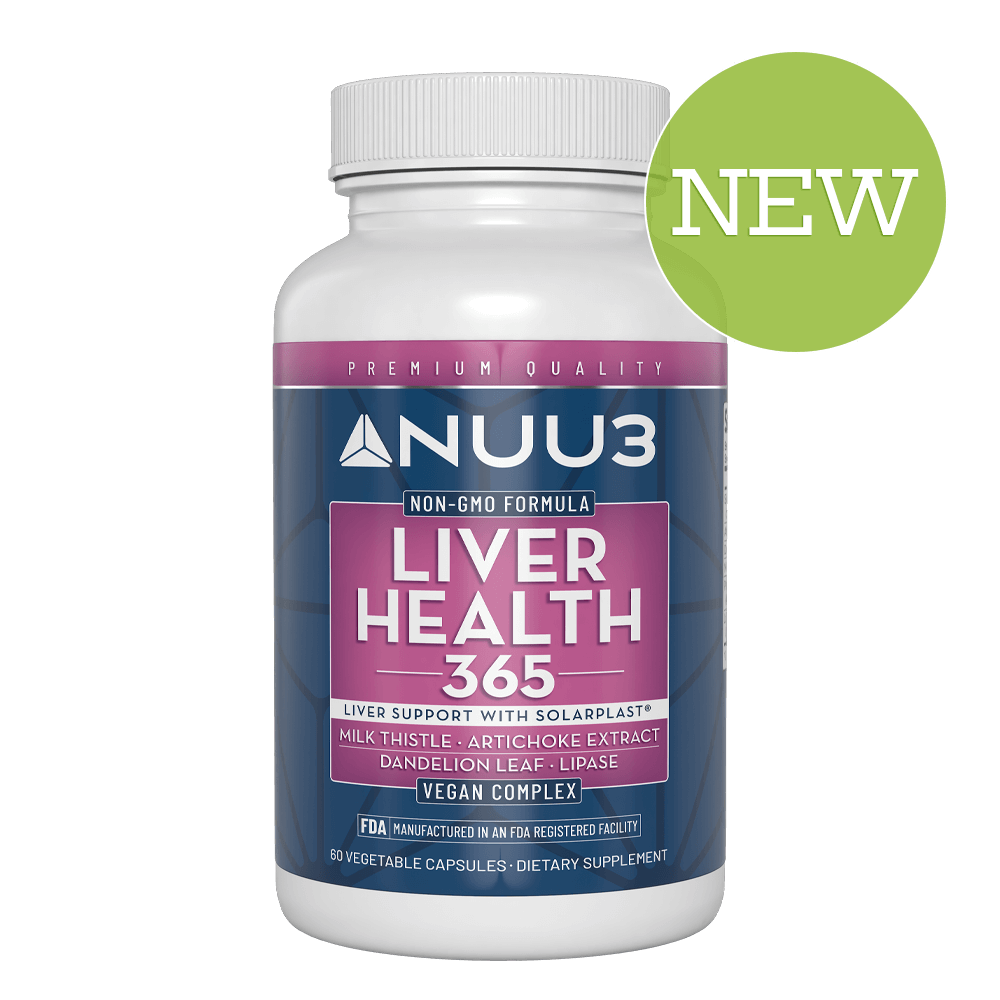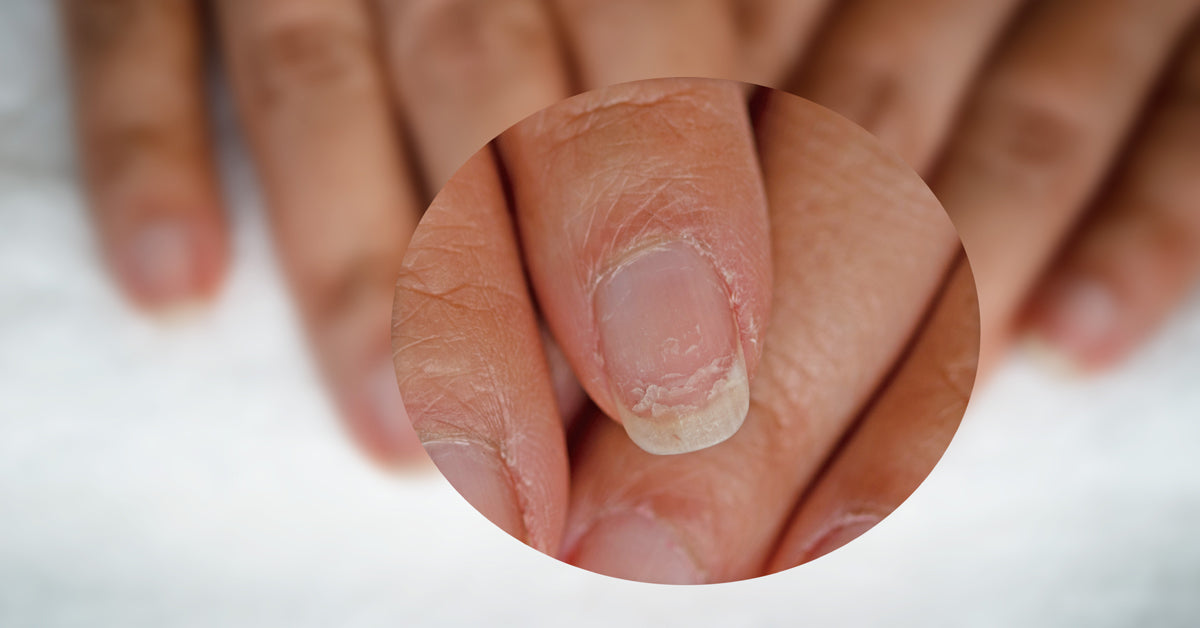Do your fingernails feel so brittle that the tips just snap off at the slightest knock? Do they split, crumble, and flake off into peeling layers? You are not alone. According to Dermatology and Therapy Journal[1], brittle nails are a common problem that affects up to 20% of the population, especially women older than 50.
The possible brittle nails causes can vary. Your nails can simply be too dry, you may have used too many chemicals, or you have a hormonal imbalance. But, there are other causes that you may not be familiar with, such as poor nutrition and fungal infections. This guide can help you recognize the causes and find adequate treatment for this condition.
What Are Brittle Nails?
Brittle nails are often hard nails that tend to snap off or break at the ridges. The brittleness of the nails[2] means that your nails can easily become split, chipped, cracked, or peeled. The nails change as we grow older. They become dull and brittle.
But, before you can understand the brittle nails causes, you should recognize the two forms of brittle nails. You can either have “hard and brittle nails”, which means the nail doesn’t have enough moisture, or “soft and brittle”, meaning there is too much moisture.
What Are the Signs of Vitamin Deficiency in Nails?
“Why are my nails so brittle?” This is a common question at any nail salon. However, not many people realize that the nails can become brittle when there is a dietary deficiency. The nail plate is made of a protein known as keratin[3].
When you supply the body with a diet teeming with protein, minerals, and vitamins, you can keep the nails in excellent shape. But, when there is a deficiency in something, like protein, iron, biotin, zinc, or vitamin C, you can have brittle nails.
The first signs of vitamin deficiency in nails are rough nail plates, fragile nails, and peeling. For example[4], a lack of biotin causes ridges on the surface of the nail, a deficiency in vitamin C may trigger hangnails, and a lack of zinc can cause white spots on your nails.
What Are the Classic Brittle Nails Causes?
Want to know what causes brittle nails? The treatment depends on finding the cause. There are plenty of different factors that can affect the quality of your nails. Here is a list of some of the potential causes.
1. Aging
Our nails change with age. The older you are, the more likely they are to become brittle and prone to cracking and peeling. Your nails might also turn yellow and lose their natural transparency.
Nails, especially on the toes, might become tough and dense. As you get older, dealing with ingrown toenails could become more frequent. You may also find the tips of your fingernails prone to breaking.
Additionally, you might notice long, parallel lines forming on both your toenails and fingernails. If you notice any changes in shape or structure that are bothering you, it’s better to get them checked out sooner rather than later.
2. Low Iron Levels
Wondering what causes split nails? Iron is crucial for creating hemoglobin, a protein responsible for transporting oxygen throughout your body. When you don't have enough iron, it makes it more difficult to deliver oxygen to the cells that help your nails and hair grow.
Iron is crucial for cellular development, including the cells accountable for creating nails. When there isn't enough iron available, the nail matrix's cell replication process may become slower and less effective. This can result in nails that are more prone to harm and fracture.
3. Hypothyroidism
Hypothyroidism is one of the most well-known brittle nail causes. Keratin starts to build up in the nail plate and causes ridges. Or there can be a drop in blood flow and nutrition to your nails, resulting in brittle nails and reduced growth.
Both hypothyroidism (underactive thyroid) and hyperthyroidism (overactive thyroid) can affect the quality of your nails. When these hormones are imbalanced, it can disrupt the normal processes involved in nail development.
They affect blood circulation, which decreases the nourishment to the developing nail, and causes a change in keratin production. Evidence from studies[5] suggests that thyroid disorders can affect the entire metabolism. Such as how the body absorbs and uses nutrients.
This is why some people with thyroid disorders might encounter shortages of essential minerals and vitamins. So, if you find yourself grappling with brittle nails, you might want to have your thyroid checked.
4. Fungal Infections
Are you asking yourself “Why are my nails so brittle”? After your nail gets infected, the fungus typically begins at the edge. It then progresses toward the cuticle. Eventually, the entire nail becomes infected. The affected area can turn yellow or white. The nail can also turn brittle.
5. Nail Care Habits
If you want to know how to strengthen nails, give them a break. Overexposure to nail polish remover, household cleaners, and detergents can weaken your nails. Regularly applying nail extensions and nail polish can also cause them to become dry.
Another common mistake is using your nails as a tool. For example, opening soda cans or other containers, and trying to remove labels, stickers, or other materials. Scraping and prying can damage the nails.
6. Trauma
Damage to the nails, like regular picking or biting, can cause brittleness. These habits weaken the nail structure over time. They apply constant pressure and force the layers of the nail to become damaged or to separate.
To make matters worse, biting and chewing on the nails disrupts the natural growth and healing process. It hinders the nail’s ability to develop properly. Therefore, the nails become brittle and more likely to split and crack. So, no matter how hard you try to care for your nails, if you keep biting and picking them, it is very hard to maintain their resilience.
How to Strengthen Nails
Now that you know the most common brittle nail causes, it is time to give your nails their strength back. The tips below can help.
1. Minimize exposure to water
You can’t completely keep your hands out of water. But, you can be mindful of your exposure. To do that, wear gloves when you are cleaning or washing dishes, take shorter baths, and avoid spending too much time in the sauna.
2. Avoid using acrylic nails
Acrylic nails can be hard on your nails, mainly because they use a powerful adhesive. If you want to know how to strengthen nails, you can use gel nails, dip-powder nails, nail wraps, etc.
Let the nails rest from time to time. This allows them to breathe and regain their natural strength. Your nails will thank you for it.
3. Reassess your diet
Dietary deficiencies are common brittle nail causes. To make your nails stronger and shinier, eat more foods like avocados, seafood, seeds, nuts, sweet potatoes, eggs, etc.
You can also upgrade your daily routine with the NUU3 Daily Multivitamin Gummies. They are packed with essential vitamins and minerals. Plus, they are delicious and perfect for regular use.
4. Taking daily biotin supplements
Taking daily biotin supplements can be a game-changer for your hair, skin, and nails. However, not all supplements are created equal. That's where NUU3 Hair, Skin & Nail Gummies come in. With a carefully formulated blend of biotin and other vital nutrients, these gummies provide a convenient and delicious way to nourish your body from the inside out.
5. Stay hydrated
Keeping your nails strong and healthy starts from within and hydration is key. Consume ample amounts of water, tea, or other refreshing drinks. But why stop there? NUU3 Nature's Superfuel provides a powerful blend of nutrients the body needs for strong, resilient nails.
6. Use non-toxic polish
Avoid nail polishes with harsh chemicals, and use water-based products free of dibutyl phthalate, formaldehyde, and toluene.
Dos and Don’ts for Healthy Nails
As you can see, there are plenty of brittle nail causes. But, the following dos and don’ts[6] can keep your nails nice and strong.
Dos:
- Use non-slip cotton lining rubber gloves for cleaning. They feel soft and pleasant to touch.
- Keep the nails clean and dry. Want to know what causes split nails? Extended exposure to water can make the nails split. Proper drying can prevent bacteria growth.
- Take good care of your nails. Use sharp clippers and manicure scissors to avoid pulling or damaging the nails. Cut your nails straight across, then gently round the tips.
- Use a nail hardener. This product can fortify your nails.
- Apply moisturizer. When using hand lotion, be sure to massage it into your cuticles and fingernails as well.
- Consult with a healthcare expert. If you notice any signs of vitamin deficiency in nails, talk to a doctor.
Don’ts:
- Tear off any tissue around your fingernails. Trim them instead.
- Chew on your nails. Do you want to know how to strengthen nails? Biting your nails can damage the delicate nail bed and expose it to fungi and bacteria.
- Ignore your problem. Persistent dry nails could be a sign of thyroid complications or nutrient deficiencies.
How Long Does It Take for Nails to Grow?
The process of growing out your nails can be quite a journey, and it certainly demands some patience. According to Dr. Tyler Hollmig[7], the director of the Department of Surgical Dermatology, laser, and aesthetic dermatology at the University of Texas Dell Medical Center, nails have a very slow growth rate.
It can take anywhere from 6 months or more for fingernails to fully grow back. Toenails, however, take longer than that, about a year. Elements like age, nutrition, genetics, and overall well-being can impact the rate at which nails grow.
FAQs
Do weak nails mean a lack of calcium?
There are plenty of brittle nail causes, one of which can be calcium deficiency. If you don’t supply the body with enough calcium, your nails can be prone to damage, the surface can feel rough and thin.
Do nails show signs of liver disease?
Extremely white nails, particularly nails that have dark edges and very pale surfaces could indicate liver problems[8]. Like hepatitis or jaundice.
What foods make nails strong?
The best foods for your nails are those high in calcium, folate, and iron. Such as poultry, fish, nuts and seeds, dark leafy greens, and dried fruits.
Takeaway
Want to know what causes brittle nails? Many factors can influence the state of your nails, including diet, hormones, age, and nail care. To treat the brittleness, you must first get to the root of the problem.
Revamping your diet can get you on the right track. Especially if your regular meals are lacking balanced nutrients. You should also give your nails a break. If you are using too many nail products, it can be difficult for the nails to get their strength back and grow.
Have you tried any of these options? Share your thoughts in the comment section.
References
1] ↑https://www.ncbi.nlm.nih.gov/pmc/articles/PMC6994568/
2] ↑https://pubmed.ncbi.nlm.nih.gov/23210755/
3] ↑https://www.ncbi.nlm.nih.gov/books/NBK513133/
4] ↑https://www.everydayhealth.com/skin-beauty/fingernail-health-nutrition-dry-brittle-nails/
5] ↑https://www.mayoclinic.org/healthy-lifestyle/adult-health/in-depth/nails/art-20044954
6] ↑https://www.prevention.com/health/a29893963/how-to-make-nails-grow-faster/
7] ↑https://kauveryhospital.com/blog/family-and-general-medicine/what-fingernails-tell-us-about-our-health/
8] ↑https://www.ncbi.nlm.nih.gov/pmc/articles/PMC8241464/










